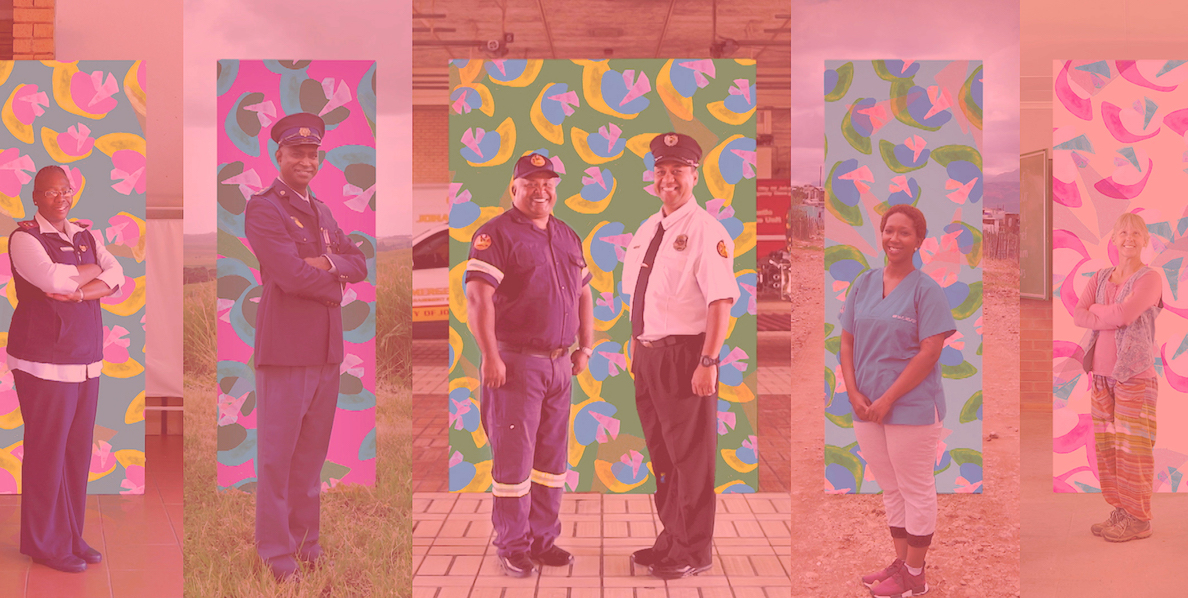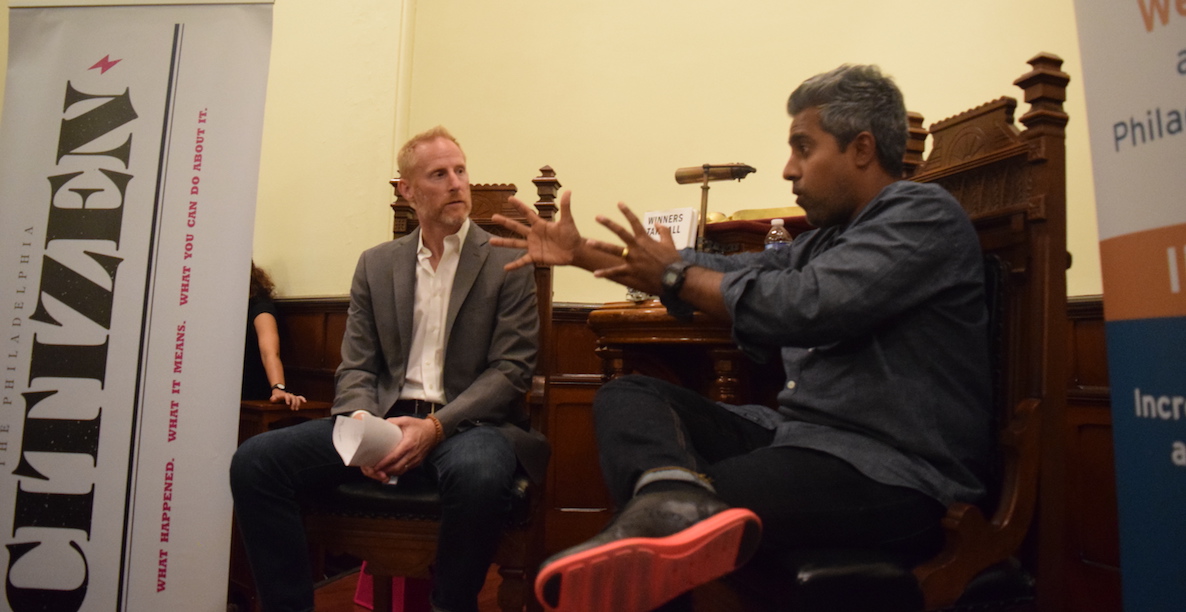Two years after she left foster care in Philadelphia, Jamyra Jimenez was already a mother of two young children—the first of whom she had when she was 14—and pregnant with her third. She had dropped out of high school, bouncing from foster care to the shelter system to her mother’s house. And after a domestic violence incident, her own children were taken into care, and social workers had warned her she probably wouldn’t be getting them back. Jimenez was only 20, and already she felt lost.
Then, last October, Jimenez became one of the first participants of a new program run by social services organization Turning Points for Children aimed at youth like her—those struggling with life after foster care. She spent nine months working intensely with a specialist who helped Jimenez understand what she needed to turn her life around—a house, a job, a way back to her kids. Then, the specialist worked with her to accomplish those goals, helping her with forms and applications, even going with her to family court.
Within a few months, Jimenez had a job as a home health worker; was learning to manage her anger; had a subsidized home of her own; and had been granted unsupervised visits with her children. By the time she was discharged from the program last June, she had retained full custody of her kids—and had the tools to care for them, and for herself.
Jimenez is the sort of success story that Turning Points CEO Dawn Holden Woods holds up as a model for why she spent the last few years—and nearly $1 million—trying to ease the transition into adulthood for youth who’ve spent years in the city’s care. Of the 1,000 young people who exit foster care in Philly every year, Woods says around 250 to 300 struggle. That, Woods contends, is a reachable number. “This is small enough that it’s fixable,” she says.
A key to YVLifeSet’s success is its intensity: Social workers, called specialists, have only 8 to 10 clients at a time, with whom they meet once a week. They serve in the role parents do for most of us—helping to guide them into adulthood, without making the decisions for them.
The Turning Points program, called YVLifeSet, hails from Youth Villages, a national nonprofit based in Memphis, Tennessee, which serves around 27,000 people a year. Youth Villages runs a variety of youth-related services, including foster care, adoption and in-home programs for children and families, for which they have become nationally recognized. It developed YVLifeSet in 1999 after a deep dive into their results showed that too many 17 and 18 year olds leaving their care still weren’t able to create a life for themselves.
You can support kids in need Do Something
That reflects the national situation. Of around 23,000 youth who leave foster care annually, half live in poverty and are unemployed; 25 percent dropped out of high school; 20 percent were homeless at some point. That is not just a series of personal tragedies; it’s also incredibly expensive: Caring for these young people, according to Youth Villages, costs the nation $300,000 per person for life, or $6.9 billion annually. And this is after the cost of foster care and other social services up until the age of 17.
Youth Villages developed YVLifeSet to address four critical areas: stable housing; remaining free of the legal system; educational and vocational training; life skills to become productive and successful citizens. Youth Villages tracks all of its participants, for years after discharge, and tweaks the program accordingly. And a few years ago, outside researchers conducted a randomized clinical trial which found modest but important progress in several areas, including housing—an area experts say is especially difficult with this population.
Youth Villages now operates YVLifeSet directly in eight states, and in June 2016, started partnering with nonprofits around the country to implement the program, starting with Seattle. Philadelphia was the biggest city to date when Turning Points adopted the model last year. This year, a New York City agency has begun using YVLifeSet, as well as one in Pittsburgh.
In Philly, every young person leaving the child welfare system is supposed to have a plan. For about 25 percent of them, that is tenuous, at best. “The plan could be, ‘I’m living with a friend who’s 20, and neither of us have jobs,’” says Woods. “That’s not a successful plan.”
Woods started looking into how to solve this problem in 2014, while she was in graduate school. She called it “Pivot,” and came up with a list of things kids needed when they left foster care: mental health care, education and employment, stable housing. Woods knew it wouldn’t work to take kids out of one system where they have little power, and put them in another. Instead, she needed a program that was led by the very people they were trying to serve—the youth themselves. “If you’re going to be successful with 17 to 22 year olds, they need to drive the plan,” she says. A colleague turned Woods on to YVLifeSet—which shares the same youth-first philosophy—and she brought it to Turning Points last year.
Some of the first five young people in the program showed up the day the program launched, even before the office opened, to start work. (“We knew how desperate they were, but even then we were surprised,” notes Monica Kreidie, Turning Points Development Associate.) Since then, they have worked with 50 youth—eight of whom have been discharged. This fall, thanks to additional funding from The HIVE at Spring Point, they will double the number of clients, which will cut in half the 95 people currently on its waiting list. (Spring Point is also a supporter of The Citizen.)
Of the 1,000 young people who exit foster care in Philly every year, Woods says around 250 to 300 struggle. That, Woods contends, is a reachable number. “This is small enough that it’s fixable,” she says.
A key to YVLifeSet’s success is its intensity: Social workers, called specialists, have only 8 to 10 clients at a time, with whom they meet once a week either at Youth Villages’ Center City office or out in the community. (It’s up to clients.) At the first meeting, specialists help develop a list of priorities and a timeline to meet them. They then connect youth to partner organizations, housing, job opportunities, health care—whatever they need, in the order they most need it. They serve in the role parents do for most of us—helping to guide them into adulthood, without making the decisions for them.
Specialists track every conversation, every need, every development through software that captures data, offers next steps and is like a digital advisor for the specialists on how to connect youth with services. And they meet once a week via conference call with a clinical consultant at Youth Villages, to review each case, and seek further advice on how to work with clients.
In Philly, as elsewhere, this combination is so far proving successful: 90 percent of the youth who joined the program were in need of stable housing; now, 35 percent have their own homes, and the rest live with family, former foster families or in supervised independent living. Eighty-five percent have jobs or are in job training; 85 percent have their GEDs and 10 percent attend Community College of Pennsylvania or are applying to college. (This is promising—though it is a very small sample, a very few months out.)
The cost per participant last year was around $11,000, a number that should dip to around $10,000 this year. That is a pittance compared to the cost of losing a young person to the ravages of a life unplanned: Becoming parents of kids they can’t parent, getting into the welfare system, on drugs, in jail. Kreidie cites an estimate that caring for a homeless person here costs $40,000 per year. “We are investing $10,000 to help a young person at a critical point in life, to get to a point of self-sufficiency early,” Woods says. “That seems well worth the money.”
Stories by Roxanne Patel ShepelavyRead More
When Woods started at Turning Points in 2003, it was called Children Aid Society and served a few hundred people a year. Now, including its food pantry, it serves 15,000 individuals in a variety of ways, including 5,500 young people in the child welfare system. Part of the reason a program like YVLifeSet is necessary is the frequent failure of that child welfare system: If kids received the services, education, mental health care and guidance they needed while still in foster care, perhaps there would not be so many set adrift when they age out. Woods acknowledges this.
“We are now thinking about how we can re-approach the other work we do and better support our clients and families when they’re in care, so there’s less need when leaving,” she says.
Meanwhile, Woods is committed to expanding YVLifeSet to serve every young person who needs it. That means expanding her staff, not their client load, which means raising the funds to do so. All but 20 percent of the funding comes from private sources, including foundations and individuals. (The city kicks in a bit.) Turning Points also relies on volunteers, who serve as mentors to the youth, and on partners who sometimes show up in unexpected ways—like helping to donate furniture when Jimenez moved into her own apartment.
“We should solve the problems we can solve,” Woods says. “There are so many problems that aren’t as easy to address. This one isn’t that hard.”
Photo: Jamyra Jimenez & her specialist via Turning Points for Children








